Life Lessons From an Ant: A Tiny Hero’s 6-Step Playbook for Leadership, Communication, and Courage (Qur’an 27:18)\
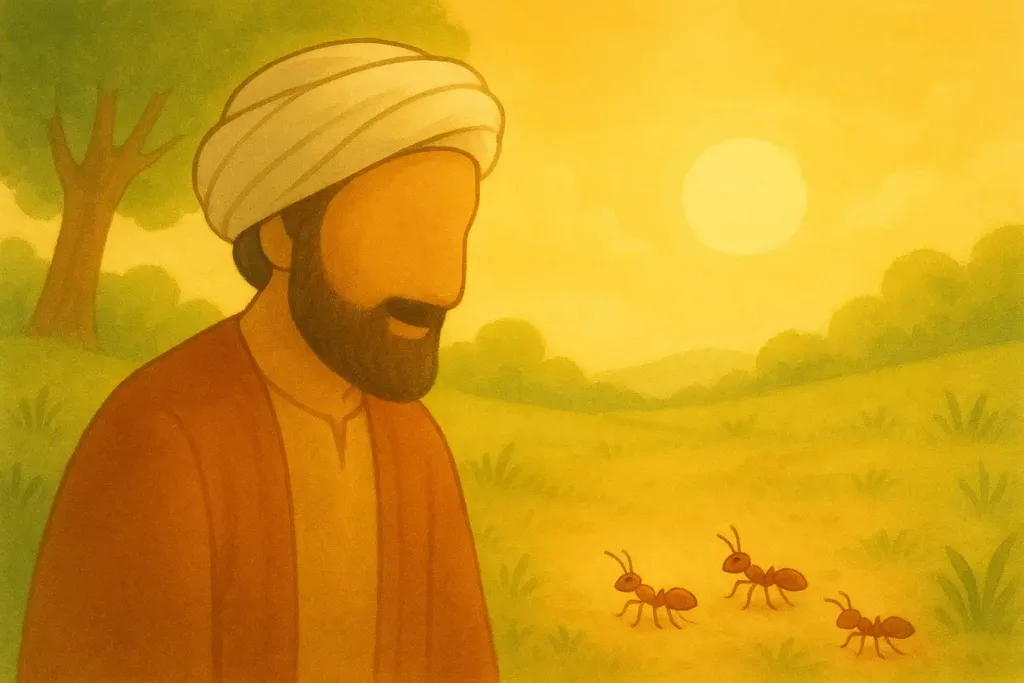
🌿 The Story of the Ant
Long, long ago, there was a great Prophet named Sulaiman (A.S.). Allah gave him a special gift — he could understand the language of animals, birds, even insects!
One hot day, Prophet Sulaiman was traveling with his huge army. Imagine thousands of men walking, horses running, birds flying above — the ground was shaking with their steps.
Far away, in a small valley, lived a colony of ants. They were tiny, but they had their own little city under the ground. Suddenly, one small ant looked up and saw dust rising in the sky. She realized — a massive army is coming!
Her tiny heart started to race. “If we don’t move quickly, all of us will be crushed!” she thought.
The little ant climbed on a small rock and shouted as loud as she could:
“O ants! Hurry, go inside your homes! Otherwise Sulaiman and his army might step on you without even knowing!” (Quran 27:18)
Thousands of ants immediately ran into their tunnels. That one warning saved the entire colony.
Prophet Sulaiman (A.S.), hearing this tiny voice, smiled. He thanked Allah for blessing him with the ability to understand even the smallest of creatures.
This isn’t just an old tale. It’s a lifetime lesson. A creature so small became a hero simply by speaking at the right time.
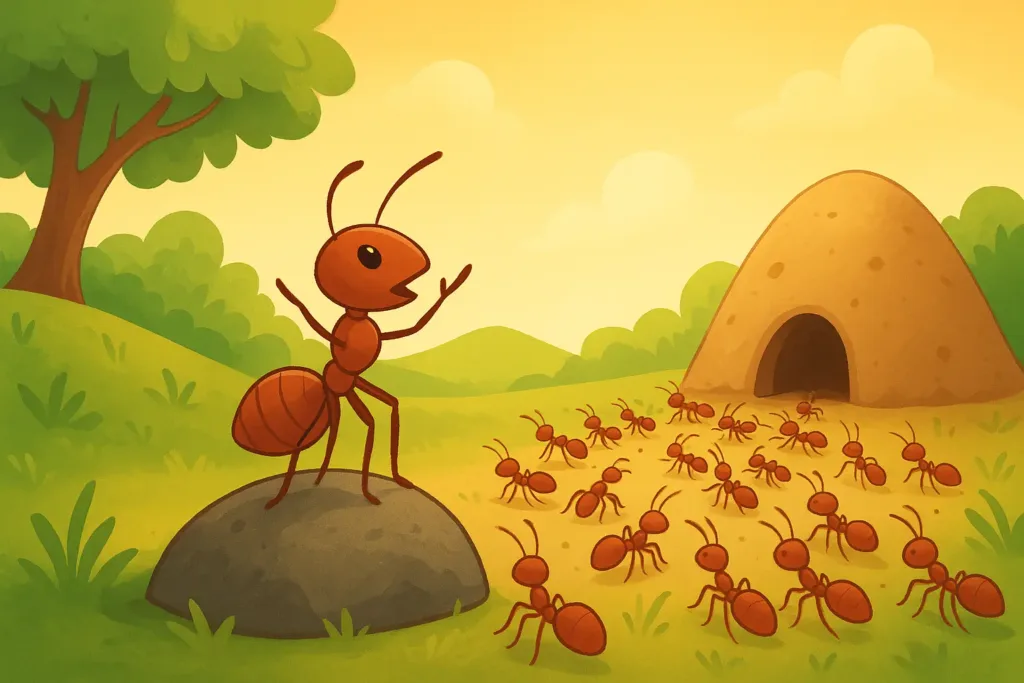
📝 6 Life Lessons From the Ant (Step by Step)
Step 1: Take Action When It Matters
The ant acted immediately when she recognized a threat. She didn’t wait for consensus or a committee; she moved.
Why it works: In fast situations, speed is compassion. Early action buys everyone else time. Leaders—formal or not—are those who move first when stakes are high.
Try it today:
- If you see a hazard (a rumor at work, a loose wire at home, a financial blind spot), raise it now, not “after lunch.”
- Keep messages short and decisive: “This is urgent. Here’s what we need to do.”
Step 2: Announce With Crystal Clarity
The ant used a direct call-out—the equivalent of saying “Hey, everyone!” In Arabic, that vocative opener (“yā”) focuses attention instantly.
Why it works: Brains are busy. Clear signals cut through noise. Ambiguity confuses; clarity mobilizes.
Try it today:
- Start alerts with a clear audience tag: “Team,” “Neighbors,” “Parents,” or “All drivers on Main Street.”
- Write the headline first, details second: “Water leak in kitchen—turn off the main valve.”
Step 3: Amplify So Distant Ears Can Hear
The narration highlights that the ant used words choice (think “yā ayyuhā”) that carried, so even those farther away got the warning.
Why it works: Communication isn’t what you say—it’s what people receive. Volume, channel, and phrasing determine reach.
Try it today:
- Choose the right channel for the right audience: a WhatsApp group for family, email for clients, a PA system for a crowd.
- Repeat important alerts in two places (e.g., message + sign), and ask one person to echo it.
Step 4: Be Selfless—Safety Is Collective
The ant didn’t sprint away alone. She considered the entire colony. Real leadership is fundamentally altruistic: you don’t survive by yourself while watching others fall behind.
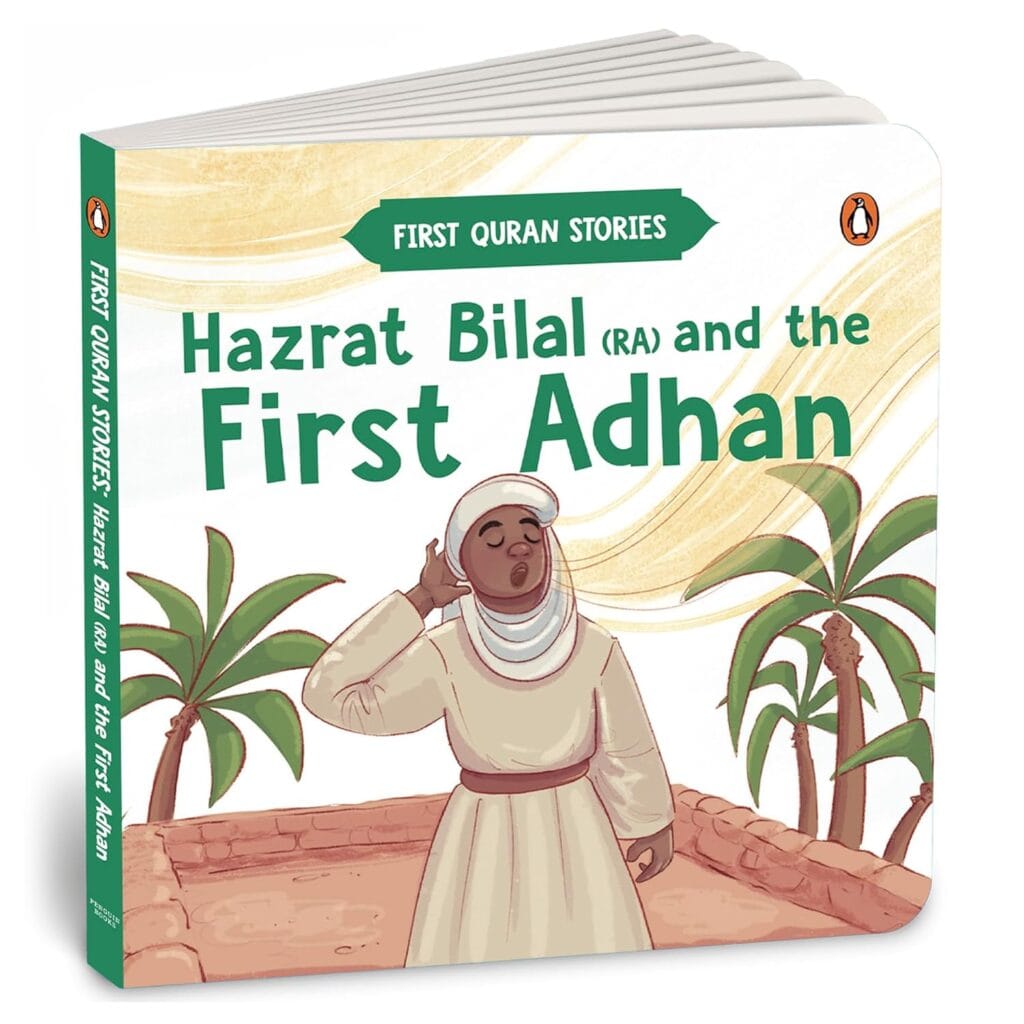
Why it works: People move when they trust your intention. Selflessness creates that trust faster than any title.
Try it today:
- In a tight deadline, share the load, not the blame.
- When you find a solution (a discount, a shortcut, a tutorial), broadcast it so others benefit too.
Step 5: Explain the Why, Not Just the What
The ant didn’t only shout “Run!” She explained the reason—to avoid being trampled. That rationale turns commands into convictions.
Why it works: Adults don’t follow orders; they follow understanding. A good “why” transforms compliance into cooperation.
Try it today:
- Pair every instruction with a brief purpose: “Please back up your files so a power cut doesn’t erase the project.”
- If you’re setting a rule at home, add the benefit: “Phones out of the room at 10 PM so your brain can rest.”
Step 6: Assume Good Intent (and Still Act)
Notice the ant’s gracious assumption: she says Solomon’s army might step on them unintentionally. That’s called husn al-dhann—holding a positive opinion of others while still protecting your people.
Why it works: Assuming malice creates conflict. Assuming goodwill fosters cooperation—and keeps you calm enough to act wisely.
Try it today:
- In disagreements, start with: “I know you didn’t mean harm—here’s what happened and how we can fix it.”
- Protect yourself without poisoning the relationship.
The Ant’s Playbook in Real Life (Micro-Habits You Can Start Now)
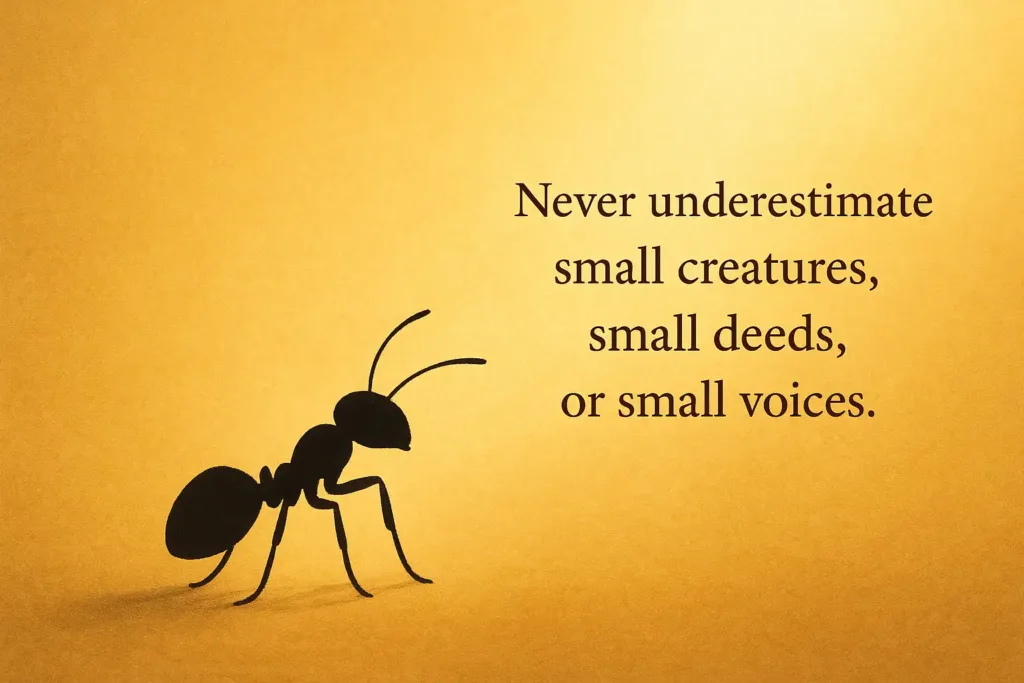
- Home: Create a family “alert protocol.” One word (“Heads-up!”) means pause and listen. Post emergency numbers on the fridge.
- Work: Draft a one-page crisis template: Subject line, audience, headline, action, why, next update time. Use it for outages, delays, or policy shifts.
- Community: Build a neighborhood broadcast list for floods, fires, or missing-person alerts. Assign two “signal boosters” who always re-share.
Why This Story Goes Viral (And Why People Love It)
- It’s tiny yet enormous. A creature we overlook becomes the protagonist. We love underdog triumphs.
- It’s actionable. Every lesson turns into a move you can execute today.
- It’s generous. The theme isn’t outrage; it’s protection, clarity, and care—values people want to share.
- It’s beautifully quotable. One line—“O ants, enter your homes”—is short, poetic, and unforgettable.
Share-worthy caption idea:
“Leadership isn’t a loud voice; it’s a timely one. Be the ant who saves the colony.”
Step-By-Step Recap (Skimmable Checklist)
- Act early when you detect danger or opportunity.
- Call your audience clearly—no vague intros.
- Amplify so everyone can hear (right channel + repeat).
- Prioritize others—lead with care, not ego.
- Explain the why to build trust and speed.
- Assume goodwill while protecting your people.
Pin this list on your wall. Share it with your team. Teach it to your children. These six moves turn ordinary people into quiet heroes.
FAQs
Q: Is this lesson only for Muslims?
A: Not at all. It’s about universal virtues—clarity, responsibility, and kindness—framed by a verse Muslims cherish.
Q: Did the ant literally speak?
A: The story emphasizes meaning more than mechanics: a tiny life form conveyed a warning and saved many. The lesson stands regardless of how you interpret the event.
Q: Can “assume good intent” make me naïve?
A: Pair goodwill with wise boundaries. Believe the best, prepare for the worst, act for the good.
Final Nudge
If a single ant can save a colony with a sentence, what could you save with one clear message today—your project, your family’s safety, your neighbor’s trust? Choose a situation, apply the six steps, and send that message now. Your voice might be small, but its timing, clarity, and care can be enormous.
Share this with someone who has a quiet voice and a brave heart. They might be the ant we all need.
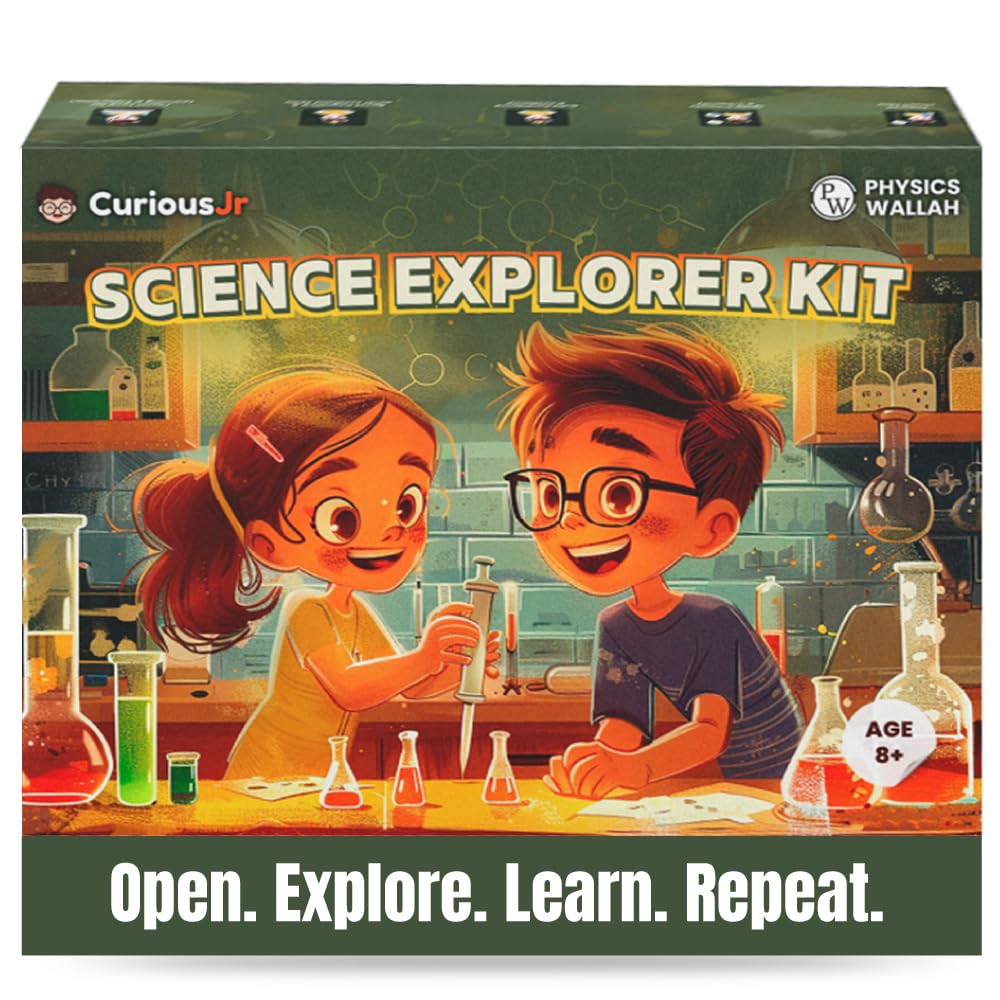
The ants remind us that knowledge grows when we work together. For children today, this lesson can be made exciting with hands-on activities. A great option is the Science Explorer Kit — packed with experiments that show how little efforts join to create big results, just like the ants.
Also Read:


